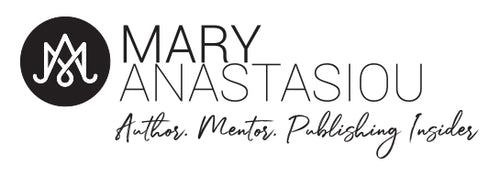Crafting your Unique Voice in Children's Literature

So, you want to write children’s books? Awesome! But let’s be real - with thousands of picture books out there, how do you make yours stand out?
The answer: your unique voice. That special vibe that makes a reader pick up your book and think, "I know this style - this is so (Your Name)!" But what exactly is an author’s voice, and why is it so important to you and your brand? Let’s dive in.
What is an Author’s Voice?
Your writing voice is like your storytelling fingerprint. It’s that one-of-a-kind mix of:
- Tone: Whether you’re playful, quirky, heartfelt, or a little bit of all three, your tone sets the mood.
- Word Choice & Rhythm: The words you pick and how they dance on the page.
- Personality: The unique quirks, humor, and insights that only you can bring to the story.
Think about your favorite children’s book authors. Aaron Blabey is playful and simple, while Julia Donaldson brings in musicality with her rhymes. Their voices are distinct, making every page unmistakably theirs. Your voice does the same - it tells your audience who you are, not just as a writer, but as a creative person.
Why is your Unique Voice so important?
-
Brand Identity:
Your voice is the foundation of your personal brand. When you write with authenticity, you build trust with your audience. Readers know what to expect from you and come back for that consistent experience. -
Stand out in a crowded market:
In the sea of children’s books, a unique voice is your secret weapon. It helps your work cut through the noise and gives you an edge when publishers and agents are looking for something fresh. -
Emotional connection:
Kids (and adults!) connect with authenticity. A genuine voice resonates more deeply, creating an emotional bond that keeps readers coming back - and recommending your work. -
Creative freedom:
Embracing your voice means giving yourself permission to be different. You’re not forced to mimic trends or fit into a mold. Your originality is what makes your storytelling magical.
Practical ways to identify and develop Your Voice
1. Write like you speak (But With a Twist)
- Be natural: Start by writing exactly as you would speak in a conversation -keeping it relaxed and friendly.
- Add flair: Once you have a draft, go back and inject a bit more personality. Use playful language or quirky metaphors that reflect your sense of humor.
- Record yourself: Sometimes, recording a spoken version of your story can reveal natural cadences and tones that you might not notice when writing.
2. Keep a “Voice Journal”
- Daily reflections: Jot down thoughts, funny observations, or interesting phrases that come to you throughout the day.
- Highlight favourites: Look back over your entries to identify recurring words, themes, or stylistic choices that feel inherently you.
- Experiment: Use your journal entries as prompts for short stories or descriptions. Notice which entries feel the most natural and engaging.
3. Read widely—and critically
- Analyse what you love: When you read a children’s book that captivates you, ask yourself: “What about the voice resonates with me?” Is it the humor? The rhythm? The way the language feels?
- Mix it up: Read authors with vastly different voices. This helps you pinpoint what you do (and don’t) want in your own style.
- Note techniques: Pay attention to sentence structure, wordplay, and the use of dialogue. Try mimicking these techniques in your practice sessions to see what fits you best.
4. Experiment and play
- Try different genres: Write a fairy tale, a mystery, or even a silly story about a talking animal. See how your voice adapts.
- Change perspectives: Write a scene from the point of view of a child, then rewrite it as an adult. Compare which version feels more authentic to you.
- Feedback loop: Share your work with trusted friends or fellow creatives. Ask them what stands out to them. Sometimes, an outside perspective is the best mirror.
5. Embrace revisions
- Be patient: Your voice won’t emerge perfectly on the first try. Write, revise, and rewrite. Each draft brings you closer to discovering your natural rhythm.
- Mix inspiration and authenticity: While it’s okay to be inspired by your favorite authors, ensure you’re not losing your unique twist in the process. Your revisions are your chance to strike the right balance.
More reasons to develop your Unique Voice
Building trust with readers
When readers feel like they know you through your writing, they’re more likely to become loyal fans. Consistency in voice builds familiarity and trust - two essential ingredients for long-term success.
Attracting the right opportunities
Publishers and agents are always on the lookout for fresh talent. A distinctive voice not only makes you memorable but also signals that you have something unique to offer in a saturated market.
Personal growth
Developing your voice is a journey of self-discovery. The more you explore and refine your style, the more you learn about your creative strengths and what makes you tick as an artist. This growth translates not only into your writing but into every facet of your creative career.
Long-term Brand Value
Your voice is part of your brand’s DNA. As you evolve as a writer, your voice evolves too. A well-honed voice stands the test of time, becoming a legacy that can grow alongside your career.
Finding your unique voice isn’t about copying someone else’s style - it’s about digging deep to discover what makes you, you. Experiment, reflect, and most importantly, be authentic. Your voice is the key to building a strong personal brand, connecting emotionally with readers, and standing out in the crowded world of children’s literature.
So, grab your notebook, start writing like you talk, and let your personality shine through every word. Because the world doesn’t need another Dr Seuss - it needs you!
Struggling to find your Unique Voice? Let me help you. Email me at: info@maryanastasiou.com.au










